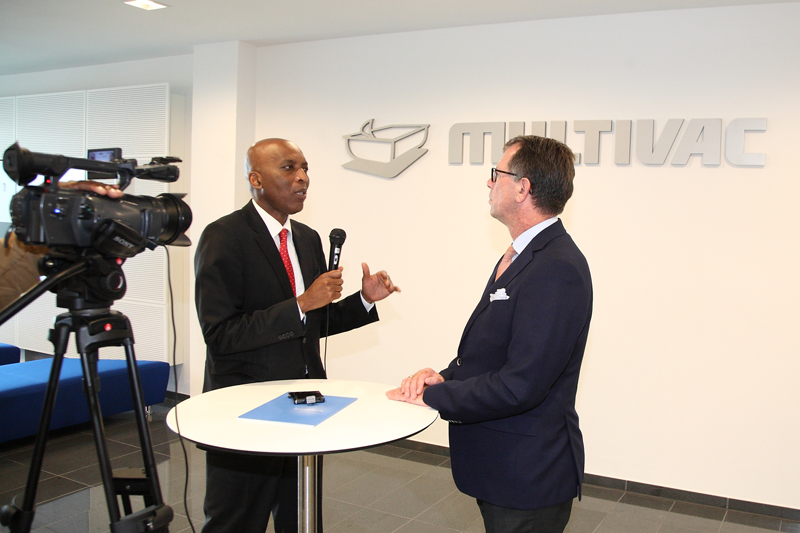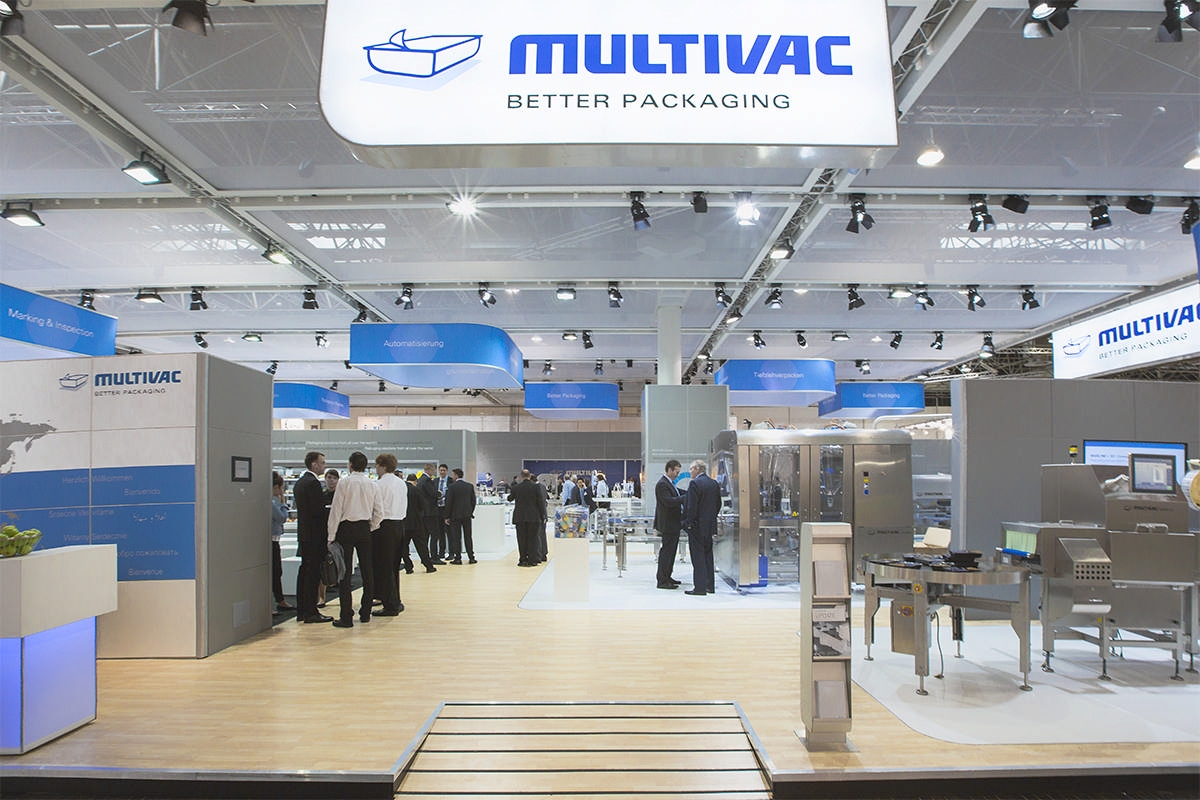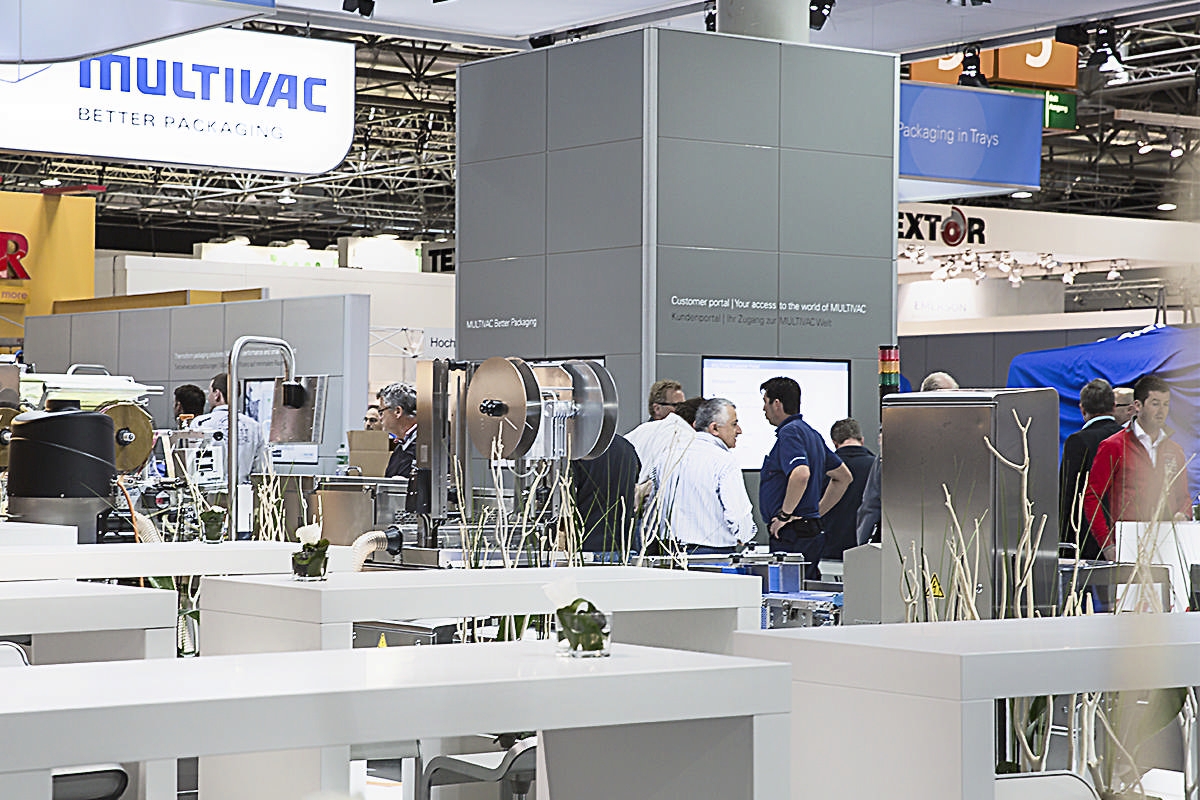Christian Traumann, CFO MULTIVAC: “The challence over the next few decades is to make sure that Added Value is generated in Africa and nowhere else.”
The preparation for the 2nd German-Senegalese Economic Summit is in full swing.
On 30 July 2014 we visited - accompanied by a camera team - the company Multivac, the worldwide market leader in the production of packaging machines for foodstuffs, and we had an interview with the Managing Director Christian Traumann.
Mr. Traumann, when we drive to your premises, it is hardly possible to imagine that a company exporting products into almost 140 countries has its registered seat "right out in the sticks".
Traumann: (Laughter) It is true, our company is located in the province. But with unbelievably lots of advantages. If you look at the Allgaeu region, you will basically find out that there is so much packaging industry located here. The founder of our company comes from a place five kilometers away from here, and started in 1961 to build packaging machines apart from working in his normal occupation. He was employed as an engineer with another enterprise. That was actually the start of an unbelievable story, which we experienced here. We have undergone our development here. We have such an incredible number of advantages here, since we simply have very loyal and excellently trained employees. Here, we enjoy optimal site conditions. All these circumstances made it possible to grow here, at this location. Although our group has meanwhile seven production sites and 75 subsidiaries throughout the world, the heart of the enterprise is still here at this location, and we try to ensure it stays that way.
However, if the company seat is located in the midst of the triangle formed by the cities Stuttgart with Mercedes, Munich with BMW and Ingolstadt with Audi, how does a medium-sized enterprise like Multivac manage to remain attractive for engineers?
Traumann: Maybe I must give two answers to that question. Basically it is true that, of course, a young engineer wanted to join one of these big companies before the onset of the crisis of 2008/2009. Simply from the aspect of security, since the employees are well cared for in these enterprises. But this has dramatically changed, as it became clear during the crisis that medium-sized enterprises like ours failed to scale down their staff - unlike big companies, as those named by you. Another aspect, which of course is especially typical for the technical area, is the question as to whether we may look at the entire value creation process, whether we may participate in a new development, or be involved in the entire machine. This means that the contents of our work are clearly placed in a wider frame and are appealing to a lot of engineers. If we look at Multivac in itself, we must say that here at the university in Kempen we have our own professorship chair in Mechanical Engineering, which is dealing with packaging machines. To once again get back to your statement first mentioned above: This is really a beautiful region. We get cheap construction land here. You find the mountains just around the corner, just like hundreds of lakes. Here, you can enjoy cycling, skiing, mountain climbing. You can excellently raise children here. We have our own kindergarden with a day-care center, where employees can leave their children in day care from the age of six weeks.
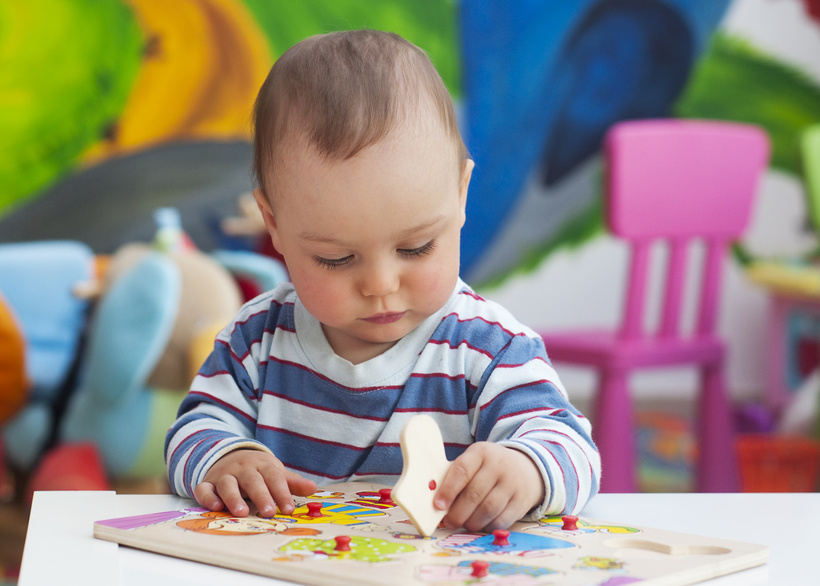
"A day-care center for children from the age of six weeks."
Multivac produces no packaging material, but only packaging machines.
Traumann: We do not produce any packaging materials, thus no foil, no paper or similar material. We manufacture the machine making it possible for you to shape synthetic materials, but also certain types of paper. We use them to make packing cavities, wherein the product is placed. We find ways of preserving foodstuffs on a long-term basis, without freezing them or contaminating them with preserving agents. In fact, our growth rates beautifully show that we are indeed growing each year by 10 percent. Last year, we generated a worldwide turnover exceeding 700 million Euro and we recorded very high growth rates, since we simply offer a technology which is needed.
What sales percentage does the food packaging unit account for?
Traumann: >Foodstuffs must certainly be subdivided. They start with a piece of raw meat and range up to the convenience products, via salad, bread and vegetables; but all these products are packed by our machines and account for approximately 80 percent of our turnover. The rest is spread over medical and pharmaceutical applications and industrial products.
Record date 1961. In that year Multivac was established. You also have a customer in Senegal, the company SEDIMA, which was likewise founded in 1961. Which products are purchased from Multivac by SEDIMA?
Traumann: SEDIMA is selling our products in the medium-class series. These are big chamber machines, but also simple web-fed presses serving for packing basic products, which are robust and particularly energy-efficient. The underlying reason is that we expend little energy, so as to enable these machines to function under maybe not entirely ideal conditions like those we know from the Northern Hemisphere. The customers are very happy with the product they purchase from us, since they can operate this machine even in difficult conditions.
You have commercial agents in North Africa and now even someone in Côte d’Ivoire. Which are the activities performed by these two staff members?
Traumann: We not only have agents, but a subsidiary in North Africa with more than 50 employees giving advice and training to customers. This is an absolutely essential issue, to which I want to come back later again. We install these machines there, but also make sure that a regular service takes place, that spare parts are available, so as to guarantee that these machines will function permanently. You find this situation not only in North Africa and in Côte d’Ivoire. We also have a person in Kenya, and we have a big subsidiary in South Africa working its way from the south through to Africa, and meanwhile subsidiaries in Namibia, Botswana and many other countries neighbouring South Africa, which do exactly what the colleagues in North Africa do in terms of consulting, training, sale, installation and services.
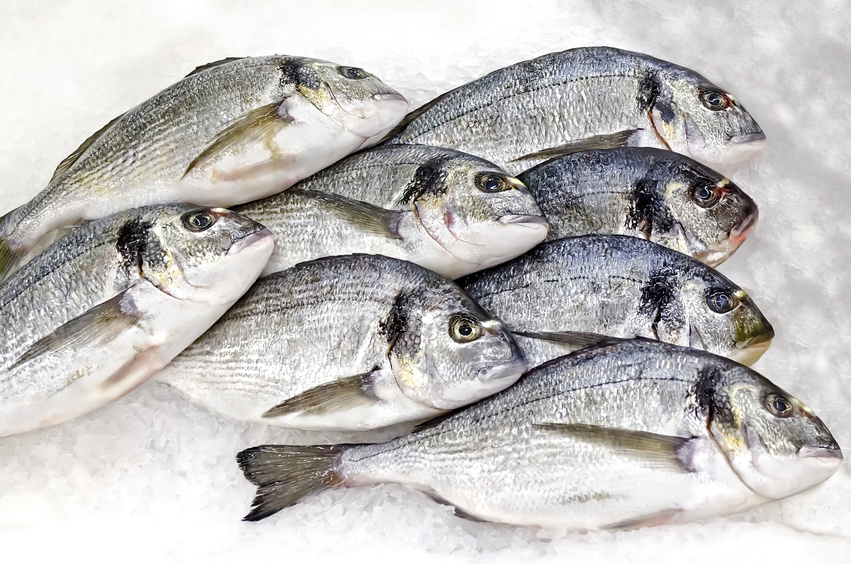
"We pack lots of fish."
As we know, Senegal is a big fish producer. Where could the starting point be for Multivac in the fishing industry?
Traumann: We pack lots of fish. What is first of all important in a first step is certainly to advise potential customers or people producing fish today. We should jointly look at the production process and work out where we are actually trying to go with our fish. How long shall the fish be non-perishable, how shall the fish be treated, do I for instance want to create added value and thereafter ship the fish to Europe, do I rather want to supply local markets, where we have in-depth expertise and where it also comes to training as a major concern. How must I create an environment, in order to make sure that this fish has a longer shelf life in this particular packaging. But I think you can get an overall picture in that respect: Two days later the fish is carried to the market of the next bigger town, is then filleted for export to Europe with added value, or otherwise further processed, so as to turn this expensive raw material, which is available in Senegal, into added value for society as a whole.
This is all well and good that foodstuffs have an extended shelf life, but we should first speak of hygiene and contamination. It makes no sense to pack foodstuffs, which are already contaminated. Will we manage to keep the foodstuffs to be packed as clean and hygienic, so as to allow them to be classified as safe prior to packaging?
Traumann: There are certainly different possibilities in that respect. We can either freeze the products for long periods at very low temperatures, in order to kill the bacteria. We can simply spray the products with preserving agents, so as to get rid of the contamination. But this cannot be our goal. Our goal is to pack a natural product in its natural state. However, a prerequisite for this is that during the time between fishing and packaging we think in this production step very precisely about what we do, what kind of refrigeration we need, and how the rooms for fish processing must look like. At this stage it is not a matter of setting huge European standards, since we know that this is not even possible in many places - at least not in a first step, but if we consider some simple principles like for instance temperature stability, or things like gloves or disinfected tools, we can achieve a lot in terms of packing a hygienic, impeccable, not contaminated product.
Should we employ less people in production, so as to avoid contamination of the products?
Traumann: Basically, yes. But you know, I have just been on a large salmon farm in Chile, where the salmon is being processed and then filleted on site. There are certain things, thank God I must say, which only man can do. And when I look at regions like West Africa, where a sufficient labour force is simply available, where people are actively seeking work, it definitely makes no sense to install a fully automated filleting machine there, firstly because we produce a lot of waste, and secondly the markets are in my opinion quite simply not yet sufficiently developed. What is decisive is that the employees who further process the fish are trained accordingly, that environments with little contamination are created.
Does Multivac also offer packagings for fruit and vegetables?
Traumann: Yes, definitely, a lot. Above all, we do it in Central America. In South America we pack lots of fruit and vegetables. But of course, the decisive factor is to make products durable, not to pick unripe fruits and leave them to ripen in containers whatsoever on their way to Europe, but rather to really obtain, maybe even to further process high-quality products. I think of pineapple bits, guacamole, avocado, papaya, mangoes, which can be further processed and packed in a way that they can be sold on markets for considerably higher prices.
Senegal's goal is to export more mangoes to Europe. What would you recommend for this product?
Traumann: Modified Atmosphere. Thus an environment slowing down the ripening of the product, without the need to pick the fruit in unripe condition. We have specialists in this field too, who have in-depth knowledge of how such a modified atmosphere must look like, in order to pack the specific fruit - since each fruit behaves differently - in a way that you can enjoy it without any concerns even after some time of transportation.
These are the fresh products. But mangoes can for instance also be further processed in the form of dried fruits. Can you offer packaging options in this field as well?
Traumann: Dried fruits are mostly products packed in bags. For such packing purposes we again have our chamber machines, which we apply. Of course, the relevant factor here is to treat the products with care, in order not to destroy their optical appearance, but also to keep the taste and colour inside. We have also developed solutions for mangoes cut into cubes, which by application of tray sealers, but also deepdrawing machines can be packed in a way that you enjoy these products for a really long time.
“More patents than all our competitors”
At the outset of the Interview you said that you pack products, in order to extend their shelf life. That is research. You probably spend a lot of money for research and development. What figures can you specify for the last few years?
Traumann: I can only tell you that Multivac holds more patents than all our competitors taken together. Last year we invested 165.000 hours for research and development, which corresponds to roughly 100 employees dealing with research and development, and which accounts for just over ten percent of our total turnover. One part is pure mechanical engineering, but we also have a research area in food technology. And from our point of view it is decisive in this case that we have in-depth knowledge about the behaviour of mangoes, a piece of fish, other fruit or meat. In this field we are spending a lot of money and engaging in continuous research
That is internal research. But you are certainly also engaged in external research. You mentioned universities; maybe also research institutes. Are you cooperating with partners in that field?
Traumann: Here in the Allgaeu region we of course have a renowned Institute called ZLV (Center for Food and Packaging Technology). They deal with the entire process chain; thus throughout the whole process of production, processing, logistics and sale of foodstuffs. That Institute represents a relatively big research unit, which is again interlinked with different universities. But we are also closely interlinked with the University Weihenstephan in Munich. It forms part of the Technical University of Munich, which only deals with the topic of food technology, and we are engaged in numerous individual projects.
But you are domiciled in a country where there are no energy problems. If you go to West Africa, you will encounter countries facing serious energy problems. Have you thought of producing machines that consume less energy at the same level of performance, or alternatively can be operated with renewable energies?
Traumann: Basically one has to say that our machines do not use that much energy. We operate the machines you saw at VDMA during your meeting with Mr. Clemens, via solar panels. That is sufficient to operate this machine. Of course not with a view to Africa, but with a general view to resource efficiency, we are making intensive efforts to reduce the energy consumption of the machines. But now already, we are in a position to offer best-running machines for regions, where the energy supply we know from Europe or from the Northern Hemisphere might not be available.
"We supply 116 trade fairs per year."
You have been present in Germany at the Interpack in Düsseldorf, the Anuga in Cologne, Fruit logistica in Berlin. Which other trade fairs would you consider attending in Germany?
Traumann: Certainly the IFA in Frankfurt can be considered; moreover the Meats and Sausages Fair in Düsseldorf, the Bio Trade Fair in Nürnberg. Perhaps this is a small view on what is to come. In the Multivac world we supply 116 trade fairs per year. Our products require lots of explanation and have such beautifully broad application potentials. The salad packing for example, which ten years ago was not even conceivable for us, is taken for granted today. Viewed in this light, we use trade fairs as the right medium to explain the added value and the application options offered by our machines. However, we have training centers in other countries as well, where we simply train a lot of people, so as to show them some possible ways of how to make use of a packaging unit.
Have you ever attended a trade fair in West Africa or not?
Traumann: Multivac, yes. We attended several trade fairs in West Africa, all the way down to Angola; but of course leaving a smaller footprint than what is known from the Interpack, and with machines fitting the demand.
We intend to organize a trade fair for all West African countries to be held in Dakar next year in November 2015, which is called "Made in Germany". Would this be a trade fair for your company?
Traumann: Basically, yes. We would certainly have to take a close look at the focal topics for that fair. Another question is who we can reach there. Made in Germany is a broad meaning. Of course, the layman first thinks of automobiles and many other industrial products. It would in any case be interesting.
We have two major topics. Renewable Energies and Food Processing.
Traumann: This already makes it more interesting. Food Processing is exactly our topic. And the overall program must fit into the fair's concept. This implies good advertising in the countries concerned, properly approaching people, being in vogue. Why not. It would certainly be a trade fair for us.
We also intend to show the Save Food exhibition at the trade fair.
Traumann: We are one of the founder members of Save Food. From our point of view the project is a good approach to explain the added value of packaging to people. Regardless of our product, save food is in our opinion an important and good issue. When you consider how many foodstuffs are spoiled before they arrive at the consumer. When you consider that today, at least according to UN studies, nobody would have to be hungry in this world, if we manage to bring all foodstuffs produced to the final consumers. This is why Save Food is a very important topic for us, acting as an enterprise for our product, but also in our capacity as citizens of this world.
Back in 2011, when the project started, you functioned as President of the Interpack trade fair, so you are fimilar with the initial conditions.
Traumann: Much earlier, of course, we kept thinking about how to approach the subject. Then, at the Interpack, we were very successful and presented the project in a very professional manner. In those days in 2011, I acted as Interpack President. Hence, I was right in the middle of everything.
"We have training centers throughout the world."
Software: How long will a customer, who purchases a machine from Multivac, need for learning to handle the equipment?
Traumann: Three years ago, we even won a price for the best HMI (Human Machine Interface). We do a lot of graphic work, mostly via touchscreens, so that the user can easily find his way around the equipment. But it's also the task of our local training center to pass on such knowledge. And we established training centers throughout the world, so as to be able to reasonably train the customers. We deliver our software in more than 50 languages. This means that your terminal can be presented in the local national language, while we prefer French and English in West Africa, which of course makes things much easier for us.
Senegal is also a major producer of salt. Art you also packing salt?
Traumann: Yes of course, like everything packed in bags. We speak of vertical or horizontal packaging. Sea salt is a high-quality product. After all, the secret for Africa is to my mind that the lots of great products Africa has to offer shall be packed in a way that they have a value, so as to avoid a situation where the added value is added in the value chain somewhere else in Europe or America. This, I feel, is the challenge for the next few decades, namely to make sure that Added Value is generated in Africa and nowhere else.
Mr. Traumann, many thanks for the Interview.
The Interview was held by Ibrahim Guèye.
About MULTIVAC (http://www.multivac.com)
MULTIVAC is one of the worldwide leading suppliers of packaging solutions: global market leader in deepdrawing packaging machines and manufacturer of a comprehensive portfolio of tray sealers, vacuum chamber machines, chamber conveyor belt machines, labelling equipment, quality control systems and automation solutions, up to turnkey product lines. The MULTIVAC group employs around 4.200 employees worldwide, while about 1.500 employees are working at the headquarters located in Wolfertschwenden. With more than 65 subsidiaries, the company is represented on all continents. More than 1.000 consultants and service technicians throughout the world dedicate their know-how and their experience to the needs of our customers and ensure a maximum availability of all installed MULTIVAC machines.







